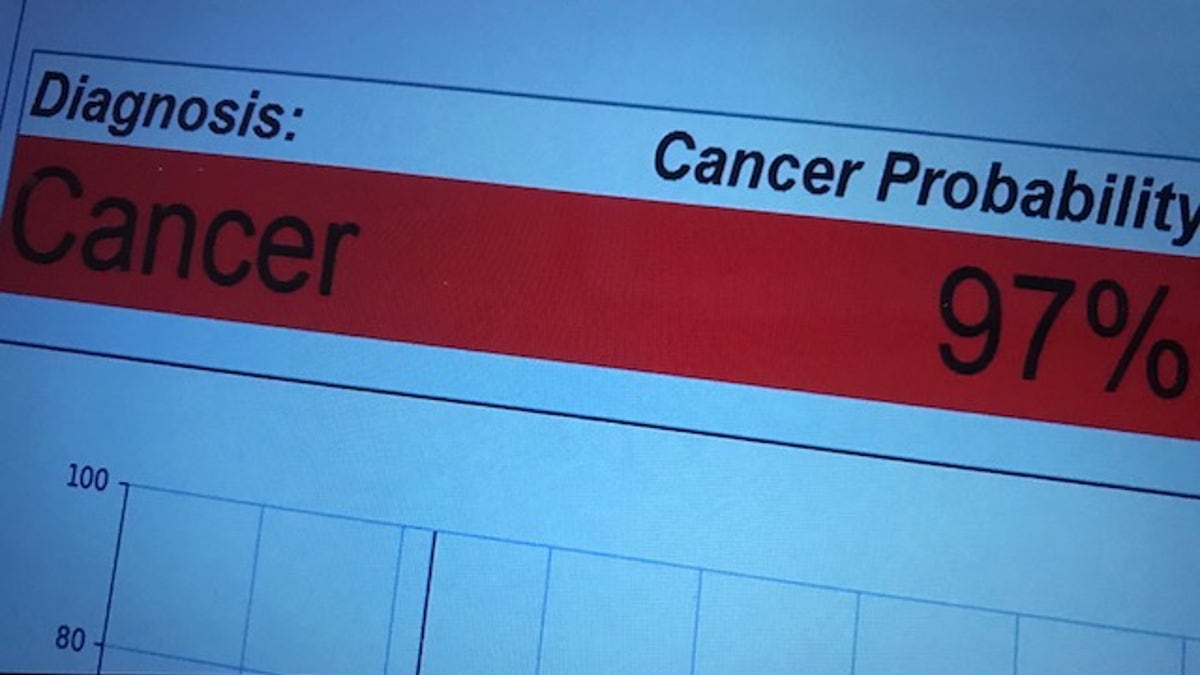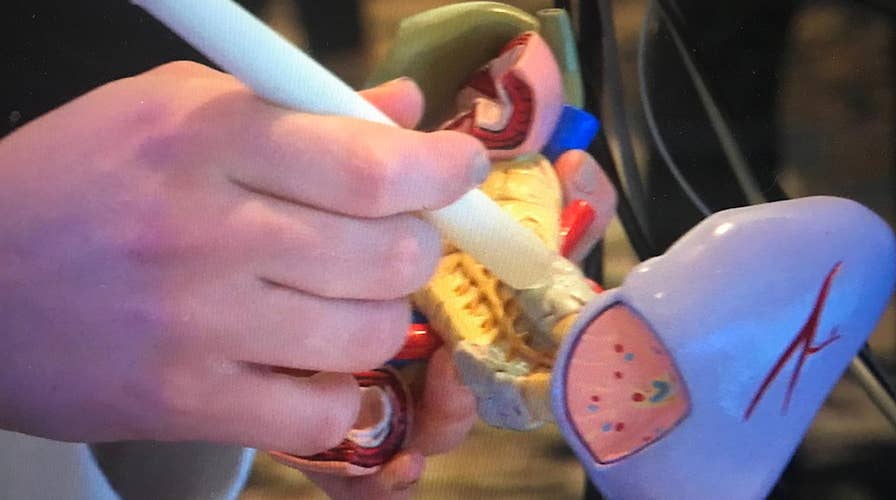'Pen' technology detects cancerous tissue in real time
Researchers develop pen for cancer detection.
Imagine if you could detect cancer within seconds. A group of researchers from the University of Texas at Austin say they’ve developed the technology to do just that. The MasSpec Pen, which is being showcased at SXSW this week, can identify cancerous tissue during surgery in real time.
“The MasSpec Pen is a handheld device coupled to a mass spectrometer that can diagnose cancer during surgery in 20 seconds,” said Marta Sans, graduate research assistant for the Livia Eberlin Research Group.
The pen uses touch to make a diagnosis. It’s placed over tissue. A foot pedal triggers the device, and the pen releases water droplets, which extract molecules from the tissue. The water is drawn into the mass spectrometer, which then analyzes the molecular composition.

Researchers at the University of Texas at Austin say the MasSpec Pen uses touch to diagnose cancerous tissue during surgery. (Fox News)
ELON MUSK PLANS MARS SPACESHIP, WARNS THERE'S A 'GOOD CHANCE' THAT EARLY PASSENGERS COULD DIE
“Then, we can create a molecular fingerprint that can say if this is cancer or if it’s not based on the molecules of the pen,” said Sans.
For doctors, the technology is groundbreaking. Determining cancerous tissue from normal tissue during surgery is sometimes difficult and waiting for results from pathologists is often time-consuming.
“The doctor may take it out, may have to send it to the pathologist for a frozen section. Meanwhile, everyone’s waiting for a report from the pathologist to see if the margin’s clear,” said Dr. Leonard Lichtenfeld, Deputy Chief Medical Officer for the American Cancer Society.

Researchers say the pen was 96 percent accurate in detecting four types of cancer: breast, ovarian, thyroid, and lung cancer. (Fox News)
SADIQ KHAN: 'DERELICTION OF DUTY' BY POLICY MAKERS FOR FAILING TO REGULATE BIG TECH
Furthermore, Lichtenfeld says the failure to remove all cancerous tissue during surgery can create more complications down the road.
“The real question is, if you don’t get all the cancer out, does that leave a place? A sanctuary, if you would, where tumor cells can stay and come back or even migrate to other parts of the body at a later time?” said Lichtenfeld.
And just because the cancer pen is fast doesn’t mean it’s not accurate. Researchers say after analyzing 300 patient samples, they were able to diagnose four types of cancer ‒ breast, thyroid, ovarian and lung cancer ‒ with over 96 percent accuracy, eliminating the risks of unnecessarily removing healthy tissue.
IBM TOUTS WATSON SUPERCOMPUTER TO SPEED UP
SCIENTIFIC BREAKTHROUGHS
“It’s going to provide great benefits to patients and also to the health care system,” said Sans.
Still, Lichtenfeld is cautiously optimistic.
“We have to remember that it’s a long way from concept, to proving it really works, to get it used by doctors in real life. We don’t know the answer to that yet and, clearly, the researchers understand that they have more work to do,” he said.
The MasSpec Pen hasn’t been tested on a human during surgery yet. Over the next several months, three of the devices will be installed in Texas hospitals: Dell Medical School, MD Anderson Cancer Center and Baylor College of Medicine.
The Food and Drug Administration has to approve the technology as well, and the regulatory process could take a few years.









































